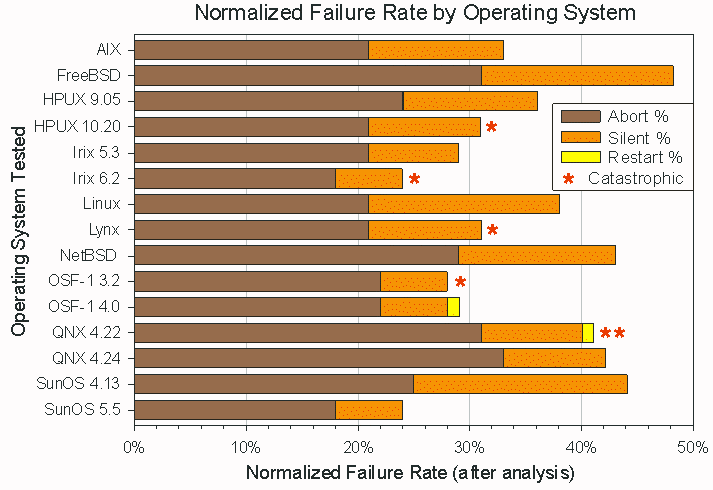Philip Koopman & John DeVale
ECE Department & Institute for Complex Engineered Systems
Carnegie Mellon University, Pittsburgh, Pennsylvania, USA
Published in the Proceedings of FTCS’99, 15-18 June 1999, Madison, Wisconsin.
Critical system designers are turning to off-the-shelf operating system (OS) software to reduce costs and time-to-market. Unfortunately, general-purpose OSes do not always respond to exceptional conditions robustly, either accepting exceptional values without complaint, or suffering abnormal task termination. Even though direct measurement is impractical, this paper uses a multi-version comparison technique to reveal a 6% to 19% normalized rate at which exceptional parameter values cause no error report in commercial POSIX OS implementations. Additionally, 168 functions across 13 OSes are compared to reveal common mode robustness failures. While the best single OS has a 12.6% robustness failure rate for system calls, 3.8% of failures are common across all 13 OSes examined. However, combining C library calls with system calls increases these rates to 29.5% for the best single OS and 17.0% for common mode failures. These results suggest that OS implementations are not completely diverse, and that C library functions are both less diverse and less robust than system calls.
Paper:
Slides from conference presentation:
